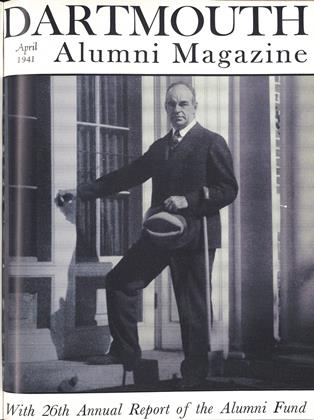by William Kelley Wright. The MacmillanCompany, New York, 1941. pp. xvi and 633.$3.00
Professor Wright has written a suggestive one-volume History of Western Philosophy. He expounds with enviable clarity the systems of thought of the main philosophers from the Renaissance to the Realists and Emergent Evolutionists of today. His treatment throughout is noted by logical organization, clean-cut exposition and a discriminating interpretation. The ideas and insights of the most significant philosophers are explained with commendable fullness considering the limits within which it had to be done. The idealists, the materialists, the dualists, the Utilitarians, the pragmatists and instrumentalists, and the neorealists are handled skillfully and in an impartial manner. From fifteen to thirty pages are given to each important philosopher. The expositions I thought most satisfying were those of Spinoza, Kant, Hegel, Spencer, James and Dewey. I may disagree with some elements in his interpretations of Kant, Hegel, Comte and Samuel Alexander, but my disagreements would be of a minor nature.
So well has Professor Wright done his difficult job that I can recommend his volume to all students of philosophy as well as to the general reader interested in Western intellectual history. It is not too advanced for the former or too academic for the latter. Perhaps it could be improved somewhat by adding to the list of philosophers treated thinkers like Santayana, Bertrand Russell, Whitehead, Cassirer, Maritain or Gilson at greater length. A concluding evaluative chapter would also be welcome. The continuities in philosophical thought could be stressed more to advantage, and the intimate relationships between the ideas of the philosophers and the social and cultural conditions of the periods in which they lived and thought deserve fuller elaboration. However, these minor inadequacies are of little importance in what otherwise is a first-rate history. The volume can be used as a text-book in a course in the growth of modern philosophy but it will appeal also to the general reader. The notes and glossary at the end should prove helpful.
 View Full Issue
View Full Issue
More From This Issue
-
 Feature
FeatureReport of Twenty-Sixth Alumni Fund
April 1941 By SUMNER B. EMERSON '17 -
 Feature
FeatureContributions by Classes in 1940 Alumni Fund Campaign
April 1941 -
 Feature
FeatureThayer School Report
April 1941 By F. H. Munkelt '08 (Thayer '09) -
 Feature
FeatureClass Rankings on 1940 Achievement
April 1941 -
 Feature
FeatureDartmouth Regulars
April 1941 -
 Feature
FeatureAlumni Fund Records 1915 to 1940
April 1941
Rees H. Bowen
-
 Books
BooksSOCIAL ORGANIZATION
January, 1931 By Rees H. Bowen -
 Article
ArticleHANOVER BROWSING
October 1933 By Rees H. Bowen -
 Article
ArticleHANOVER BROWSING
November 1933 By Rees H. Bowen -
 Article
ArticleHANOVER BROWSING
February 1934 By Rees H. Bowen -
 Article
ArticleHANOVER BROWSING
March 1934 By Rees H. Bowen -
 Article
ArticleHANOVER BROWSING
June 1934 By Rees H. Bowen
Books
-
 Books
BooksTHE ASTONISHED MUSE.
July 1958 By BINK NOLL -
 Books
BooksGROWTH HORMONES IN PLANTS
November 1936 By Charles J. Lyon -
 Books
BooksA SHORT HISTORY OF AMERICAN LITERATURE, VOL. 1: FOUNDATIONS OF AMERICAN LITERATURE,
January 1952 By H. G. R. -
 Books
BooksTHE TRINIDAD CARNIVAL, MANDATE FOR A NATIONAL THEATRE.
APRIL 1972 By HENRY B. WILLIAMS -
 Books
BooksALL THE BEST IN AUSTRIA WITH MUNICH AND THE BA VARIAN ALPS.
APRIL 1972 By JOHN HURD '21 -
 Books
BooksAssessing the Assessors
May 1981 By Richard Winters

